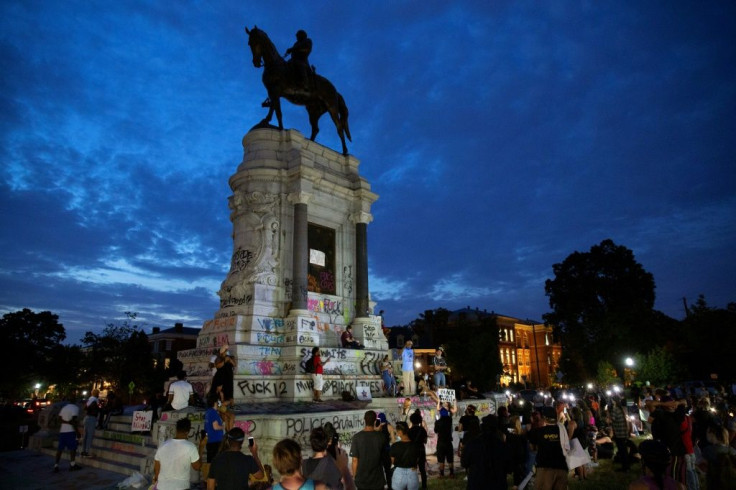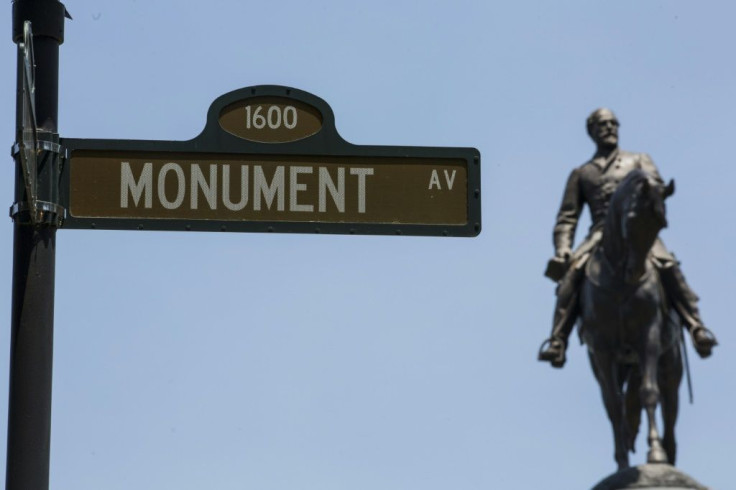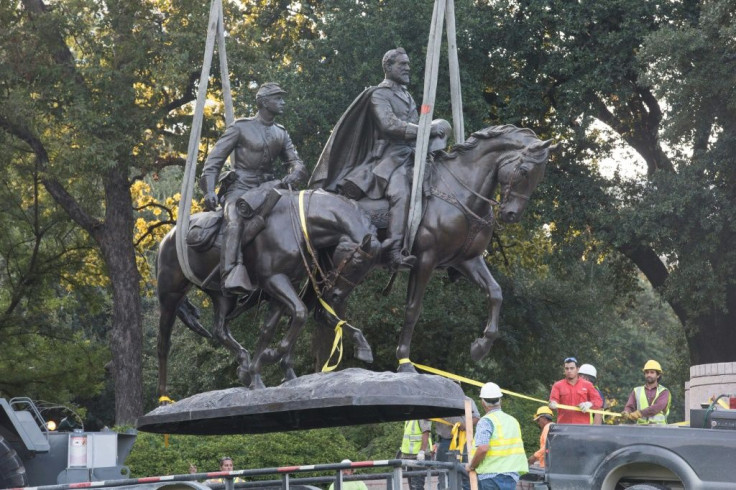Pressure Mounts To Remove Confederate Monuments Amid US Protests

As protests for racial justice grip the United States, pressure is mounting to take down monuments to the slave-holding Civil War South, with several memorials being dismantled this week and others slated for removal.
Debate over what to do with Confederate symbols has simmered for years and has reached a boiling point with the death of George Floyd, the African-American man killed by a white police officer in Minneapolis last week.
Floyd's death triggered demonstrations nationwide and some of the anger has been directed at the Confederate monuments seen by many Americans as symbols of a racist legacy.
Virginia Governor Ralph Northam announced on Thursday that a statue of Confederate general Robert E. Lee in Richmond, the capital of the Confederacy during the 1861-1865 Civil War, would be removed "as soon as possible."
"Yes, that statue has been there for a long time," the Democratic governor said. "But it was wrong then and it is wrong now. So we're taking it down.
"In 2020 we can no longer honor a system that was based on the buying and selling of people," Northam said.

The governor said the statue will go into storage and he would "work with the community to determine its future."

Lee, a Virginian, served as commander of the Army of Northern Virginia during the Civil War between the North and the pro-slavery South.
The statue of Lee mounted on a horse has dominated Monument Avenue in Richmond since its was erected over 100 years ago.
The stone pedestal of the statue had been spray-painted by protestors over the past few days with slogans such as "Black Lives Matter" and "Hold Cops Accountable."

The Reverend Robert W. Lee IV, a descendant of the general, supported the move to remove his ancestor's statue, calling it a "symbol of oppression."
"Today is a day of justice not for my family but the families of countless enslaved persons who continually have fought for justice both long before and long after the Civil War," Lee said.
"Though I know the statue's eventual promised removal won't fix the issues we face it is a sign that sentiments and hearts are changing toward justice."

The decision to remove Lee's statue came two days after a Confederate monument was taken down in another Virginia city, Alexandria, by its owner, the United Daughters of the Confederacy.
The bronze statue of a Confederate soldier was named "Appomattox," for the site of the 1865 Rebel surrender to Union forces, and was erected some 130 years ago.
In the southern city of Mobile, Alabama, a statue of Confederate admiral Raphael Semmes was taken down on Friday.
"Moving this statue will not change the past," Mobile Mayor Sandy Stimpson said in a statement. "It is about removing a potential distraction so we may focus clearly on the future of our city."
In Montgomery, Alabama, demonstrators knocked a statue of Lee off its pedestal on Monday at a high school named after the general.
Tensions over the fate of Confederate monuments have occasionally led to violence.
In August 2017, a woman was killed when a white nationalist drove his car into a crowd of protestors in Charlottesville, Virginia.
The protestors had gathered in opposition to white supremacists who were demonstrating against plans to remove a statue of Lee from a public park.
The Charlottesville violence gave new life to a campaign to remove Confederate symbols which first gained momentum following the June 2015 murders in South Carolina of nine black churchgoers by an avowed white supremacist.
Defenders of preserving the Confederate symbols argue that they serve as a reminder of a proud Southern heritage, and removing them is erasing history.
President Donald Trump has condemned the removal of Confederate statues as "foolish" and claimed that US culture and history were being "ripped apart."
According to historians, most of the hundreds of Confederate monuments dotting the South were erected during the Jim Crow era of racial segregation and in response to the civil rights movement.
© Copyright AFP {{Year}}. All rights reserved.





















